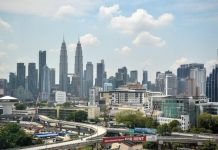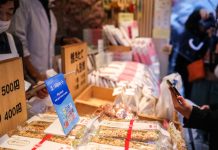US consumer sentiment perked up in early June as households cheered the reopening of businesses and a surprise rebound in hiring, though they did not expect a significant improvement in the economy amid fears of a resurgence in COVID-19 infections.
The survey from the University of Michigan is broadly in line with economists’ expectations that the recovery from the recession would be a long slog. The National Bureau of Economic Research, the arbiter of US recessions, declared on Monday that the economy slipped into recession in February. “While uncertainty about the future is beginning to ease, it is still higher than it was at any time during the Great Recession,” said Joel Naroff, chief economist at Naroff Economics in Holland, Pennsylvania. “That raises questions about the willingness to purchase big-ticket items. If we don’t see that happen, the recovery will be slower than hoped for.”
The University of Michigan’s consumer sentiment index increased to a reading of 78.9 from 72.3 in May. It said “few consumers anticipate the reestablishment of favorable economic conditions anytime soon.” Two-thirds of consumers in the survey expected “bad times financially” during the year ahead, while half anticipated a “renewed downturn.”
In addition to concerns about a second wave of COVID-19 infections, consumers also worried that persistently high unemployment could slow the economic recovery. Though the economy created 2.5 million jobs in May, an employment gap of nearly 20 million remains since March when nonessential businesses were shuttered to slow the spread of COVID-19. Layoffs are more than double their peak during the 2007-09 Great Recession.
Economists polled by Reuters had forecast the sentiment index would rise to 75 early this month. While the University of Michigan survey showed consumers’ inflation expectations easing slightly in June, they remained above their pre-COVID-19 shutdown levels. Consumers’ one-year inflation expectations slipped to 3.0 per cent from 3.2 per cent in May. Five-year inflation expectations dipped to 2.6 per cent this month from 2.7 per cent.
Consumers’ inflation perceptions in the past months have been driven by higher food prices, amid meat shortages caused by COVID-19 outbreaks at processing plants. “That provides some reassurance that the recent plunge in prices for travel-sensitive services like airline fares and motor vehicle insurance will not lead to a more widespread period of falling prices,” said Andrew Hunter, a senior US economist at Capital Economics.
Source: Reuters














